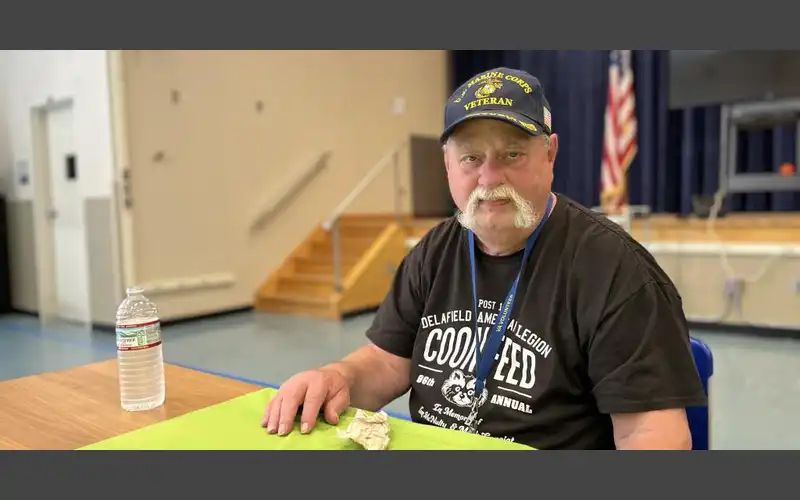“It’s definitely touching,” he said, noting he’s been with the program for about nine years. “It’s still kind of traumatizing, and it bothers me a little bit, especially when you get to know them … but it’s nice to see (an end to their suffering).”
Steffel is one of about 30 volunteers in the program, started about 10 years ago to assure that all Veterans nearing the end of life have someone to ease their passing.
Volunteers take part in specialized training so they know “what to expect when they go in a room, what signs they’ll see when a Veteran is passing so they won’t be afraid and guidelines on how to be a presence for them,” said Lisa Hopson, registered nurse case manager for the palliative hospice program.
That could mean reading a book at the bedside, holding the Veteran’s hand, talking with the Veteran or just sitting quietly.
Volunteers step up
While many people would be reluctant to take on such a task, the program does not lack for participants, who gladly give up nights, weekends and holidays so they can be at the bedside.
Steffel, a Vietnam-era Marine Corps Veteran, said it’s the least he can do.
“Being a Veteran and knowing people who passed away in Vietnam, I felt that I needed to pay back,” he said.
The volunteers are truly selfless in their dedication to the program, said Alyssa Schroeder-Mann, palliative care coordinator.
“I am really impressed with our volunteers,” she said. “They take time out of their holidays to be here with our Veterans. The work they do for our Veterans is incredible. It’s so meaningful to the Veterans as well as the staff.”
Working with families
The program works hand-in-hand with families and their wishes, Hopson said. Volunteers may be at the bedside during overnight hours or other times when family members can’t be present and then step out when not needed.
And families are very appreciative of the program.
“They are so thankful,” Steffel said, noting that families have invited him to funerals.
In one instance, Steffel was asked to read a Bible passage at the bedside, with nurses and other Veterans assembled in the room.
“I was really touched that they asked me (to do that),” he said.
In some cases, Veterans do not have family members or are estranged from them, Hopson said. This is when the volunteers fill the void and help ease the burden on nurses, who have myriad duties and patients that pull them away from patients who are actively dying.
“They give us that time to work with other Veterans and not feel guilty,” she said, saying it’s not unusual to have multiple patients simultaneously in a state of active dying. “It takes some of that off us, and we’re just relieved knowing someone is there.”
Always on call
As death comes in many different ways — sometimes quickly, sometimes slowly — the program maintains a roster of on-call volunteers as well as scheduled time slots.
And getting volunteers for “No Veterans Dies Alone” is not difficult, according to Sara LeClaire of the Center for Development and Community Engagement, which oversees all volunteers in the hospital.
In fact there are so many on the list that they could go for weeks without being called.
“We do a rotation to make sure all the volunteers can give their time,” LeClaire said.
“This shows their generosity and passion to serve Veterans. They really want to be here to make a difference,” Hopson said. “It just warms your heart.”
Veterans can find information about the US Dept. of Veterans Affairs at https://www.va.gov/


















